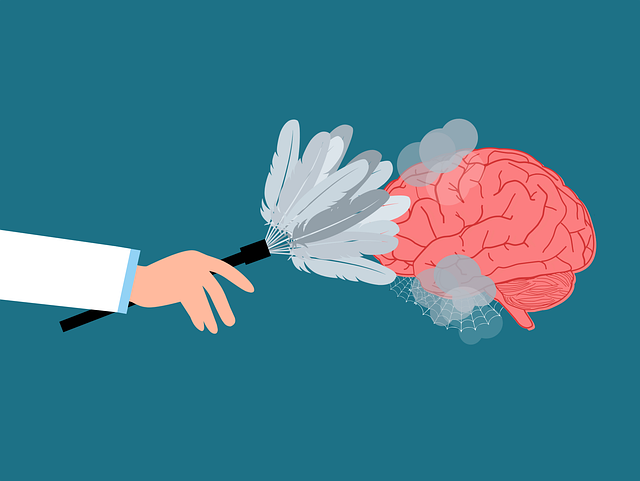Arvada Domestic Violence Therapy advocates for comprehensive mental health policies addressing domestic violence. By integrating emotional regulation techniques and specialized services, they empower individuals with tools to manage trauma and conflicts peacefully. This approach, aligned with growing mental health awareness, promotes conflict resolution skills and support systems to reduce domestic violence. Arvada DV Therapy's effective risk management strategies and community engagement ensure holistic assistance for survivors, setting a successful model for other communities to follow. Measuring success through key indicators like reduced severe mental illness rates and improved patient outcomes drives systemic change and enhances overall well-being.
Mental health policy analysis and advocacy are vital components in fostering equitable access to care. This comprehensive guide explores key aspects, from understanding foundational policies like Arvada Domestic Violence Therapy, to investigating the profound impact of domestic violence on mental well-being. We delve into successful community support models and strategic policy advocacy methods aimed at achieving mental health equity. Additionally, this article emphasizes the importance of measuring success in mental health policy implementation.
- Understanding Mental Health Policy: A Foundation for Change
- The Impact of Domestic Violence on Mental Well-being
- Arvada Domestic Violence Therapy: A Case Study in Community Support
- Policy Advocacy Strategies for Mental Health Equity
- Measuring Success: Evaluating the Effectiveness of Mental Health Policies
Understanding Mental Health Policy: A Foundation for Change

Understanding Mental Health Policy is a pivotal step towards fostering positive change in communities, especially when considering sensitive issues like domestic violence. Arvada Domestic Violence Therapy highlights the need for comprehensive mental health support within such contexts, addressing not only the immediate crisis but also long-term emotional well-being. By integrating Emotional Regulation techniques into policy frameworks, it becomes possible to equip individuals with tools to manage stress and resolve conflicts peacefully.
This approach aligns with growing Mental Health Awareness efforts, emphasizing that policy advocacy should go beyond mere awareness campaigns. It suggests a more proactive strategy by advocating for policies that promote conflict resolution skills and support systems, ultimately reducing the prevalence of domestic violence and enhancing the resilience of affected individuals.
The Impact of Domestic Violence on Mental Well-being

Domestic violence has a profound and lasting impact on individuals’ mental health and overall well-being. It is a complex issue that often goes unnoticed, yet it can lead to severe emotional trauma, anxiety, depression, and even post-traumatic stress disorder (PTSD). The cyclical nature of abuse creates a vicious cycle where victims may experience heightened stress levels, difficulty forming healthy relationships, and a constant state of fear, all of which contribute to poor mental health outcomes.
For those seeking recovery, Arvada Domestic Violence Therapy offers specialized services tailored to address these unique challenges. By incorporating practices such as emotional intelligence development, mindfulness meditation, and mental wellness journaling exercises, victims can begin the process of healing and rebuilding their lives. These therapeutic approaches empower individuals to gain insights into their emotions, cultivate a sense of calm, and develop healthy coping mechanisms—essential tools in navigating the complexities of trauma recovery and fostering long-term mental wellness.
Arvada Domestic Violence Therapy: A Case Study in Community Support

Arvada Domestic Violence Therapy stands as a beacon of hope and support within its community, exemplifying the power of targeted mental health initiatives. This program focuses on addressing domestic violence, a pressing issue that significantly impacts mental wellness. By offering specialized therapy and resources, it ensures individuals affected by such trauma receive crucial care and guidance. The approach is comprehensive, integrating various strategies like Mental Wellness Journaling Exercise Guidance to help clients process their experiences and Crisis Intervention Guidance for immediate support during crises.
Moreover, Arvada Domestic Violence Therapy demonstrates the importance of community-driven solutions. Through collaborative efforts, it connects individuals with necessary resources, fostering a supportive environment. This model can serve as a framework for other communities, emphasizing the need for tailored mental health programs that cater to specific challenges. Effective risk management planning, as highlighted by Crisis Intervention Guidance and Risk Management Planning for Mental Health Professionals, ensures the safety and well-being of both clients and therapists, facilitating a sustainable support system for all involved.
Policy Advocacy Strategies for Mental Health Equity

Advocating for mental health equity involves strategic policy initiatives that ensure everyone has access to quality care and support. One effective approach is to push for legislation that integrates mental wellness into all sectors, from education to employment. This includes promoting Mental Wellness programs in schools to foster early intervention and Emotional Regulation skills, ensuring a foundation for life-long mental health. By incorporating Empathy Building Strategies, communities can create supportive environments, reducing stigma and fostering inclusive spaces.
For instance, organizations like Arvada Domestic Violence Therapy can lead by example by advocating for policies that address the intersection of domestic violence and mental health. This might involve collaborating with policymakers to develop resources specifically targeting survivors’ emotional recovery, ensuring they receive comprehensive care tailored to their unique needs. Such advocacy is crucial in achieving systemic change, ultimately enhancing the overall resilience and well-being of communities.
Measuring Success: Evaluating the Effectiveness of Mental Health Policies

Measuring success is a critical aspect of mental health policy analysis, as it allows for a comprehensive evaluation of the effectiveness and impact of implemented strategies. When assessing the success of policies aimed at improving mental well-being, various indicators can be employed to gauge progress. These metrics may include reduced rates of severe mental illness, increased access to quality care, improved patient outcomes, and enhanced societal support systems. For instance, Arvada Domestic Violence Therapy initiatives could measure success by tracking the number of individuals receiving therapy, their satisfaction levels, and the long-term stability of their mental health.
A key component in policy evaluation is identifying effective practices that can be scaled up and integrated into broader mental health frameworks. This involves analyzing specific interventions, such as mood management techniques or risk assessment tools for professionals, to understand their contribution to improved patient care. Additionally, policies that foster confidence-boosting strategies among both patients and healthcare providers can significantly impact overall success. By employing these evaluation methods, policymakers can ensure that mental health initiatives are evidence-based, adaptive, and aligned with the evolving needs of communities, ultimately leading to better outcomes for those seeking support.
Mental health policy analysis and advocacy are essential components in fostering equitable access to care and improving community well-being. By examining domestic violence as a significant mental health predictor, we highlight the critical need for integrated support systems like Arvada Domestic Violence Therapy. This case study demonstrates the power of collaborative efforts in enhancing mental health outcomes. Effective policies, guided by evidence and advocacy strategies, can lead to meaningful change, ensuring that individuals affected by domestic violence receive the necessary support and resources. Measuring success through rigorous evaluation allows us to refine approaches and ultimately promote mental health equity for all.














